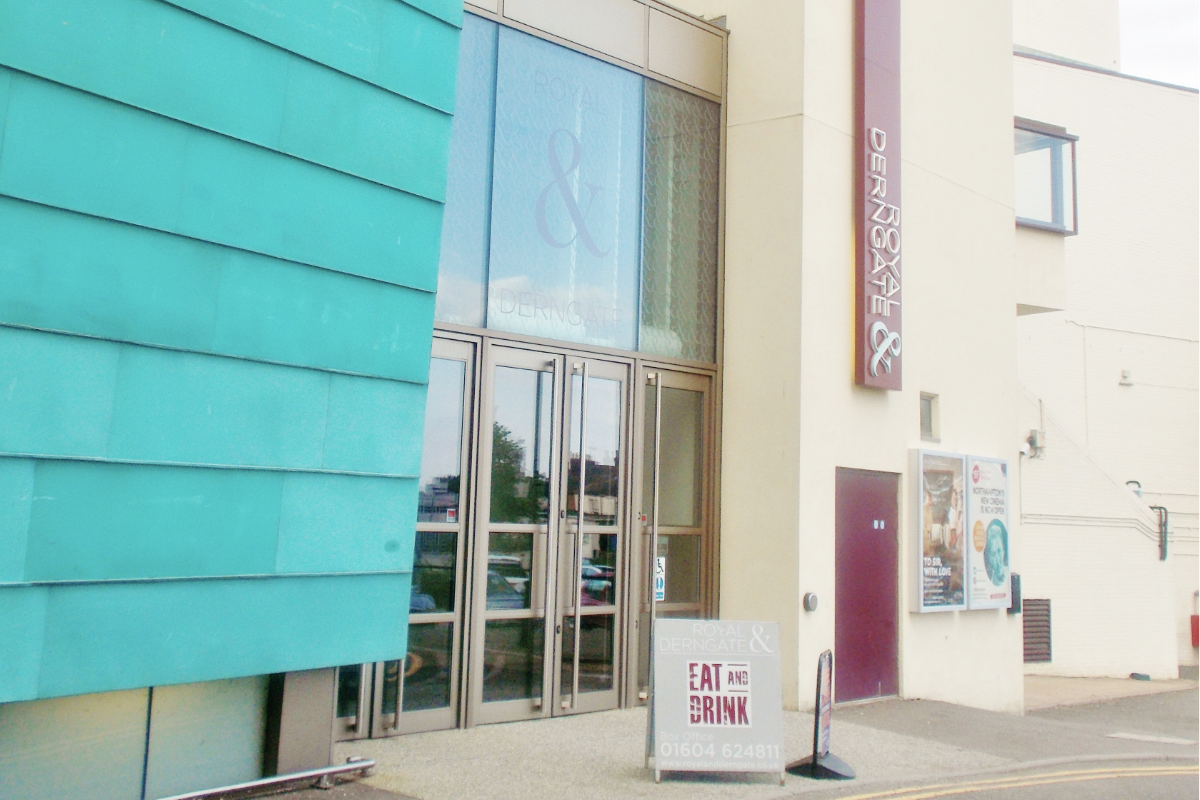
Royal & Derngate Theatre in Northampton has postponed its September performances
Photo: StJaBe / CC BY 3.0
Theatres close due to aerated concrete concerns
Some theatres are being forced to postpone or relocate performances after the discovery of aerated concrete, while others disclose its presence but insist buildings are safe.
Theatres are taking the decision to temporarily close their doors after discovering the use of reinforced autoclaved aerated concrete (RAAC) in their buildings.
Following the Health and Safety Executive advising that RAAC, which was used in the construction of thousands of public buildings across the UK between the 1950s and 1990s, is now life-expired and “liable to collapse with little or no notice”, organisations and local authorities have begun reviews of potentially impacted buildings.
Northampton’s Royal & Derngate Theatre has postponed all its remaining shows through September and has prohibited entry to its building after the discovery of RAAC in its foyers.
READ MORE:
In Dartford, The Orchard Theatre has suspended all performances with immediate effect. A routine inspection on Monday resulted in a consultant recommending closure until further surveys can be carried out.
And Cardiff Council has confirmed that Wales’ national concert hall will temporarily shut for at least four weeks. The council said the decision was made to close St David's Hall after discussions with independent structural engineers.
Elsewhere, the Core Theatre in Solihull has closed while investigations are conducted, and the Forum Theatre in Romiley, Stockport, has also closed as a "precautionary measure".
Meanwhile, the National Theatre has told The Stage that it has "a small number of select backstage areas where RAAC is present", but says it does not believe remedial work is necessary.
Remedial works
The Royal & Derngate Theatre is now working with its landlords, West Northamptonshire Council, to investigate and plan remedial works.
A statement on the theatre’s website says its Box Office will contact ticket holders over the coming days to move, exchange or refund tickets.
“We are deeply saddened by this discovery and to have to close our doors at this time, particularly as September is usually an incredibly busy and important time for the theatre,” Chief Executive Jo Gordon said.
“We are keenly aware of the disappointment that this will cause to audiences, visiting companies and our staff alike, though we know they’ll understand that their safety is always our primary concern.”
The venue consists of an auditorium with a capacity of 1,500 and a smaller 450-seat royal theatre. Neighbouring cinema Northampton Filmhouse has also closed temporarily.
The organisation has been celebrating the 40th anniversary of the Derngate Theatre this year, which is home to the auditorium and was built to the rear of the royal theatre in 1983.
Partial closure of Scarborough theatre
Meanwhile, a theatre in Scarborough has had to close part of its building after discovering RAAC, although it hopes performances will not be impacted.
The YMCA Theatre is based in a former school built in the 1960s. The decision to close until the building is professionally inspected was taken after a crack was discovered in concrete.
The theatre’s general manager, Liam Downey, told the BBC staff were being cautious.
“We identified a part of our building that could contain RAAC,” Downey said.
“This combined with the 1960s build date and the fact we are an old school raised alarm in our team. On closer inspection we noticed a crack in part of the concrete.”
Downey said productions in the building, which hosts a 290-seat theatre, are not expected to be impacted, though the dressing rooms are now out of action.
Safety reviews
While the majority of impacted buildings appear to be schools, Director of the Institution of Structural Engineers, Keith Jones, told the BBC an urgent safety review of all public buildings in Wales was required to understand the full scale of the issue.
The two theatres affected this week are not the first to take action on the issue. In March, Brunton Theatre in East Lothian closed after safety concerns were raised over the roof and the council found RAAC used in roof slabs.
The theatre opened in 1971 and underwent extensive refurbishment in the late 1990s.
At the time of the discovery, the theatre managed to reschedule the majority of its performances and is continuing to advertise events at neighbouring venues.
The building is still closed, and in July, Bruton Theatre Trust began discussion with the council for a temporary lease of a new venue for an initial six-month period.
Join the Discussion
You must be logged in to post a comment.